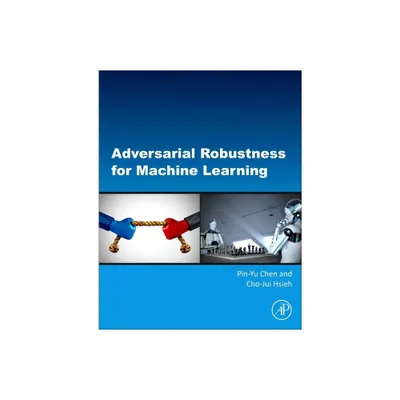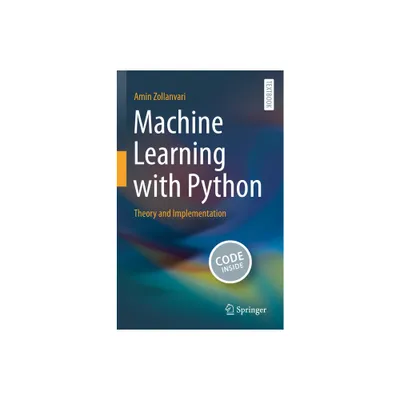Home
Adversarial Robustness for Machine Learning
Loading Inventory...
Barnes and Noble
Adversarial Robustness for Machine Learning
Current price: $110.00


Barnes and Noble
Adversarial Robustness for Machine Learning
Current price: $110.00
Loading Inventory...
Size: Paperback
*Product Information may vary - to confirm product availability, pricing, and additional information please contact Barnes and Noble
Adversarial Robustness for Machine Learning
summarizes the recent progress on this topic and introduces popular algorithms on adversarial attack, defense and verification. Sections cover adversarial attack, verification and defense, mainly focusing on image classification applications which are the standard benchmark considered in the adversarial robustness community. Other sections discuss adversarial examples beyond image classification, other threat models beyond testing time attack, and applications on adversarial robustness. For researchers, this book provides a thorough literature review that summarizes latest progress in the area, which can be a good reference for conducting future research.
In addition, the book can also be used as a textbook for graduate courses on adversarial robustness or trustworthy machine learning. While machine learning (ML) algorithms have achieved remarkable performance in many applications, recent studies have demonstrated their lack of robustness against adversarial disturbance. The lack of robustness brings security concerns in ML models for real applications such as self-driving cars, robotics controls and healthcare systems.
summarizes the recent progress on this topic and introduces popular algorithms on adversarial attack, defense and verification. Sections cover adversarial attack, verification and defense, mainly focusing on image classification applications which are the standard benchmark considered in the adversarial robustness community. Other sections discuss adversarial examples beyond image classification, other threat models beyond testing time attack, and applications on adversarial robustness. For researchers, this book provides a thorough literature review that summarizes latest progress in the area, which can be a good reference for conducting future research.
In addition, the book can also be used as a textbook for graduate courses on adversarial robustness or trustworthy machine learning. While machine learning (ML) algorithms have achieved remarkable performance in many applications, recent studies have demonstrated their lack of robustness against adversarial disturbance. The lack of robustness brings security concerns in ML models for real applications such as self-driving cars, robotics controls and healthcare systems.


















